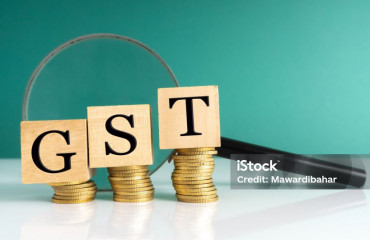
In a Lok Sabha reply dated 18 August 2025, the Ministry of Finance provided details on GST collections and compliance in the Union Territory of Dadra and Nagar Haveli and Daman and Diu. The Union Territory recorded a total gross GST collection of ₹27,900 crore between 2017–18 and July 2025. Annual collections rose from ₹2,140 crore in 2017–18 to ₹4,410 crore in 2024–25, with ₹1,652 crore collected up to July 2025 in the current financial year. The figures reflect consistent growth, barring a dip in 2020–21 during the pandemic period.
In a Lok Sabha reply dated 18 August 2025, the Ministry of Finance provided details on GST collections and compliance in the Union Territory of Dadra and Nagar Haveli and Daman and Diu. The Union Territory recorded a total gross GST collection of ₹27,900 crore between 2017–18 and July 2025. Annual collections rose from ₹2,140 crore in 2017–18 to ₹4,410 crore in 2024–25, with ₹1,652 crore collected up to July 2025 in the current financial year. The figures reflect consistent growth, barring a dip in 2020–21 during the pandemic period.
On compliance, the number of active taxpayers in the Union Territory has gradually increased over the years. From 8,121 taxpayers at the initial stage in July 2017, the number reached 16,168 by March 2025. Of these, the majority were under the regular (normal) GST category, while a smaller proportion opted for the composition scheme.
To further strengthen GST compliance in the Union Territory, the government has implemented several reforms on the recommendations of the GST Council. These include mandatory use of e-way bills, matching of input tax credit (ITC), e-invoicing requirements for business-to-consumer suppliers, use of machine-based data analytics, Aadhaar authentication for registration, and targeted enforcement actions such as calibrated measures against non-filers, stop filers, and risky taxpayers.
The reply highlights both the steady revenue growth from the Union Territory and the government's ongoing compliance-driven measures aimed at improving tax administration and curbing revenue leakage.
GOVERNMENT OF INDIA
MINISTRY OF FINANCE
DEPARTMENT OF REVENUE
LOK SABHA UNSTARRED QUESTION NO. 4078
TO BE ANSWERED ON MONDAY, THE 18th AUGUST 2025/ 27 SRAVANA, 1947 (SAKA)
GST Collection in Dadar and Nagar Haveli and Daman and Diu
†4078 SHRI PATEL UMESHBHAI BABUBHAI:
Will the Minister of FINANCE be pleased to state:
(a) the total GST collected in the Union Territory of Dadra and Nagar Haveli and Daman and Diu during each of the last eight financial years particularly from Daman and Diu, year-wise;
(b) the details of total number of persons and institutions from Daman and Diu filed GST returns during the last eight years along with the category under which highest GST returns have been filed; and
(c) the details of steps taken by Government to further strengthen GST compliance in the Union Territory of Dadra and Nagar Haveli and Daman and Diu?
ANSWER
THE MINISTER OF STATE IN MINISTRY OF FINANCE
(SHRI PANKAJ CHAUDHARY)
(a): The details of Gross GST collection (Domestic) of Union Territory of Dadra and Nagar Haveli and Daman and Diu is given below: –
(in Rs. Crores)
(b) The detail of active taxpayers of Union Territory of Dadra and Nagar Haveli and Daman and Diu at the end of each financial year is given below: –
(c) The Government, on the recommendations of the GST Council, has taken several measures for reforms in GST. These inter-alia include measures for improving tax compliance such as mandating e-way bill, ITC matching, e-invoice for B2C suppliers, deployment of machine-based analytics, aadhaar authentication for registration, calibrated action on non-filers, stop filers, targeted assessment-based action on risky tax payer, etc.
